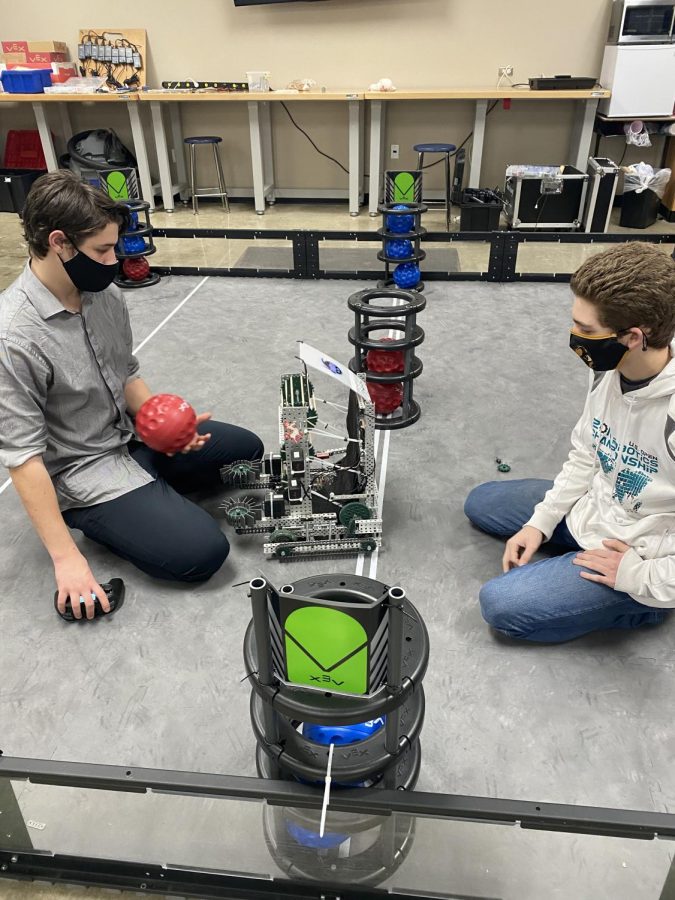Robotics club adapts while soaring above standards
Amelia Coleman | Golden Eye Staff Writer
Juniors Keegun Yancey, left, and Jason Fortenberry test their robot in Mrs. Avery’s afterschool robotics program.
March 12, 2021
The 2020-2021 school year has been unlike any other, but the JHS robotics club has still managed to work hard and play hard.
JHS robotics members have qualified multiple times for the state competition, which is scheduled for April 9.
The club has also participated in both virtual and in-person competitions, a change from previous years.
“You still learn things every year. … This year, we’ve had to learn stuff with [being] remote. What they’ve found is, this year, they can’t just build a robot for one job,” said engineering and robotics teacher Mrs. Beth Avery.
“They essentially have three different competitions this year: They have in-person tournaments, then they have the skills challenge, which has a completely different field setup … and then, they have a remote tournament they’re participating in. … It’s a completely different strategy game.”
Though competitions normally start in October, they began in January this year.
The Vex Robotics Competition involves driving a robot inside of an arena, picking up colored balls and lifting the balls into goals. Players receive points for how well the robot is designed, how well it is driven and how many balls are scored for each team.
The skills competition tests an individual team’s programming and driving skills.
This year, since the skills challenge is scored differently and has a different layout, team members have found it necessary to adapt to a completely new game. Instead of designing and programming for one tournament, they must do three different things.
While this is difficult, many of Avery’s students took a robotics class in junior high, where they learned the beginnings of programming. This allowed them to have a head start for the robotics club, unlike students a few years before, when robotics was not available in junior highs or elementaries in the Jonesboro School District.
Team Katrina, a team within the robotics club at JHS, has dominated games this year. Three students – Abigail Avery, Keegun Yancey and Jason Fortenberry – make up the group.
During each club meeting, the teams prepare for competitions, making adjustments to their robots and practicing maneuvering the robots for the game.
Avery, who has taught competitive teams for at least five years, believes a robotics program is beneficial to students because it teaches them problem-solving skills. For example, even though fields at tournaments are supposed to be identical, there is always variation in how they are set up. Programmers, therefore, must work around potential inconsistencies when programming their robots. Further thinking skills are required when students create a notebook that features coding, illustrations of robot parts and scenarios that could determine a win or a loss. Illustrations of balls in goals can help these students visualize how they can best score points in the game.
“The purpose of the notebook is to show the process you went through for the whole robot. That includes building. … The first thing [judges] want to see is, did you analyze the game? … Time management is another portion of it,” Avery said.
With a hefty load on their plates and a constant brain workout, robotics students have the opportunity to apply these time-management and problem-solving skills to their lives. This, combined with the inevitable adaptations to the COVID-19 pandemic, has surely taught students that they are capable of more than they might think.
